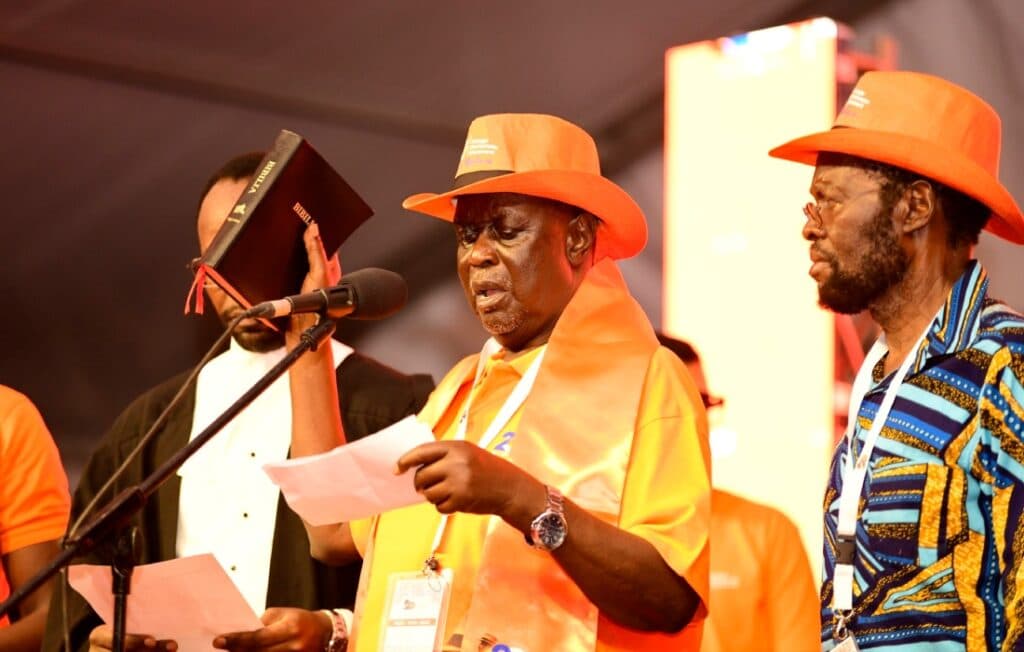We're loading the full news article for you. This includes the article content, images, author information, and related articles.
Siaya Senator Dr. Oburu Oginga has disclosed his anxieties about the unity of the Odinga family after the death of his younger brother, Raila Odinga, citing unresolved family matters, including the management of their father's estate, as potential triggers for conflict among the next generation.

Siaya Senator Dr. Oburu Oginga has publicly revealed his long-held fears of a potential fallout within Kenya's most prominent political dynasty following the death of his brother, Raila Odinga. In a candid interview with the Daily Nation on Thursday, November 20, 2025, Dr. Oginga disclosed that he had warned the former Prime Minister about unsettled “outstanding matters,” primarily concerning their family estate, which he believed could fracture the family's cohesion.
According to Dr. Oginga, he expressed these concerns to his brother just days before his passing on October 15, 2025, emphasizing the need to resolve these issues to prevent future disputes among their children. “I was telling him that there are a few things which are outstanding in the family, including the estate, which we had managed with him,” Dr. Oginga stated. He had reportedly urged his brother to “settle the matter once and for all” to ensure a smooth transition and safeguard the unity they had worked to maintain throughout their lives. A meeting to address these issues was scheduled for October 19 in Dubai but never took place due to Raila Odinga's untimely death.
Dr. Oginga's primary concern was that the strong bond he shared with his brother might not be replicated by the next generation. “If anything happens to you or me, or to both, and we all go, these young people—I don't see them gelling as much as we gel with you,” he recalled telling his brother. This revelation offers a rare glimpse into the private anxieties shadowing one of Kenya's most influential political families, a dynasty that has shaped the nation's political landscape for over half a century.
The death of Raila Odinga, a towering figure in Kenyan politics, has inevitably triggered a high-stakes succession battle within his Orange Democratic Movement (ODM) party and the wider family. Dr. Oburu Oginga, at 82, has stepped in as the interim party leader, a move he insists is temporary to guide the party through its transition. However, this transition has not been without friction, exposing potential rifts within the family itself.
Raila's youngest daughter, Winnie Odinga, a Member of the East African Legislative Assembly (EALA), has emerged as a vocal force, publicly questioning the current party leadership's capacity to navigate the complex political landscape. During the ODM@20 celebrations in Mombasa, Winnie called for a National Delegates Convention (NDC) to allow members to elect new leaders, a move widely interpreted as a challenge to her uncle's interim leadership. Dr. Oginga has responded by stating such family matters would be discussed privately.
The Odinga family has a long and storied history in Kenyan public service, beginning with their father, Jaramogi Oginga Odinga, Kenya's first Vice President. The family's influence has spanned generations, producing numerous political leaders. However, the current dynamics suggest a generational shift is underway, with figures like Winnie and her siblings, Rosemary and Raila Jr., poised to play significant roles. Raila Jr. has been culturally installed as the head of his father's immediate household, a role distinct from political leadership but significant within the family structure.
The internal family dynamics have significant implications for the future of ODM, which for two decades has been synonymous with Raila Odinga. The party is currently navigating a complex relationship with President William Ruto's administration, having joined a “broad-based government.” This decision has created divisions within the party, with some advocating for continued cooperation and others, like Winnie, questioning the arrangement.
Dr. Oginga has asserted that his brother's wish was for ODM to remain in government and not return to the opposition. He has set a high bar for future political negotiations, stating the party would not settle for anything less than the Deputy President's seat in any 2027 coalition. This stance signals a pragmatic approach aimed at maintaining the party's influence at the national level.
As the Odinga family and the ODM party navigate this transitional period, the key challenge will be to manage the succession in a way that preserves unity while accommodating a new generation of leaders. Dr. Oginga's fears of a family fallout underscore the delicate balance required to protect a political legacy built over decades. The resolution of both the family's private affairs and the party's public direction will be critical in determining whether the Odinga dynasty can sustain its formidable influence in Kenyan politics.
Keep the conversation in one place—threads here stay linked to the story and in the forums.
Sign in to start a discussion
Start a conversation about this story and keep it linked here.
Other hot threads
E-sports and Gaming Community in Kenya
Active 9 months ago
The Role of Technology in Modern Agriculture (AgriTech)
Active 9 months ago
Popular Recreational Activities Across Counties
Active 9 months ago
Investing in Youth Sports Development Programs
Active 9 months ago
Key figures and persons of interest featured in this article